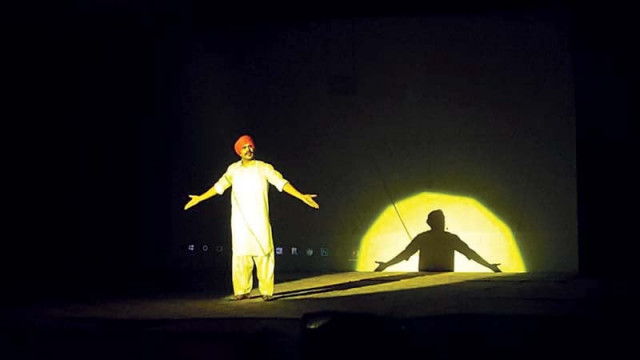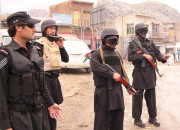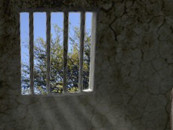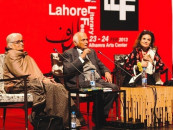Bhagat Singh: Remembering an early herald of independence
Documentary, stage play illustrating life and struggle of the iconic revolutionary spellbind audience at Lok Virsa

A theatrical play had been organised to enlighten the youth on the freedom fighter, Bhagat Singh at Lok Virsa. PHOTOS: EXPRESS
A documentary and a stage play on the life and struggle of Bhagat Singh was presented at the Lok Virsa late Saturday evening – a rare phenomenon in the present charged the atmosphere.
Hundreds of progressive political workers, writers, intellectuals and citizens applauded the effort of the organizers, Lok Virsa management and the performance of the artists who very aptly portrayed the struggle of Bhagat Singh and the circumstances in which the iconic freedom fighter and his comrades laid down their lives for the freedom of the subcontinent, and how things have changed
The documentary titled “Indelible – Bhagat Singh” depicts the ongoing controversy over renaming of the Lahore’s Shadman Chowk where Bhagat was hanged by colonial rulers on March 23, 1931, after the freedom fighter.
When a few years ago the Lahore district administration on the demand of Bhagat Singh Memorial Trust announced to rename the roundabout after Bhagat Singh, a group of clerics and local traders opposed the move. The dispute is pending before the Lahore High Court.
“The way the freedom fighters and the political leaders who fought the British colonial rule are demonised and disowned in Pakistan is very unfortunate,” writer Wajahat Masood says.
A stage play followed the documentary, in which Bhagat symbolically visits his village, Banga, Lyallpur district, now Faisalabad and finds the people and places changed beyond recognition. His Lyallpur is in a country named Pakistan.
“Isn’t it Lyallpur of Master Sunder Singh,” he asks and is told that “this is Faisalabad of Rana Sanaullah”.

When a Chaudhry of his village, after meeting Bhagat, wonders why he has come to the village and how one could long for his village in the paradise, Bhagat says there is no greater paradise than one’s own soil.
“My relation to this soil is like a son’s to his mother,” says Bhagat. In another dialogue, he says, “What kind of freedom it is that you have become the prisoner of your fears”.
Interspersed with revolutionary slogans raised by a group of left-wing activists from the audience, the play did spellbind the audience. Some of the dialogues delivered by the characters like Gandhi and Jinnah and the lawyer who defended Bhagat were very powerful.
For instance, the artist who played Gandhi’s role at one point said Bhagat Singh believed in the independence of a common Hindustani more than in the independence of Hindustan. “Bhagat Singh was not an ordinary man, rather he was the first free citizen of the colonial India,” says Gandhi.
The play also showed Muhammad Ali Jinnah defending Bhagat in the Central Legislative Assembly.
Noted artist Zainab Dar and Iftikhar depicted the scene of hanging and revolutionary zeal of Bhagat, his comrades -- Sukhdev, Chander Shekar Azad Bismal through a classical dance earning plaudit from the audience. The play ended with a very optimistic message conveyed by a young boy, Hussain Qazi, that he will continue the mission of Bhagat.
Earlier addressing the audience Lok Virsa Executive Director Fouzia Saeed called for owning our centuries-old history, culture and heroes. She also paid tribute to various communities that played a role to win freedom from the colonial rulers.
Published in The Express Tribune, August 15th, 2016.



















COMMENTS
Comments are moderated and generally will be posted if they are on-topic and not abusive.
For more information, please see our Comments FAQ